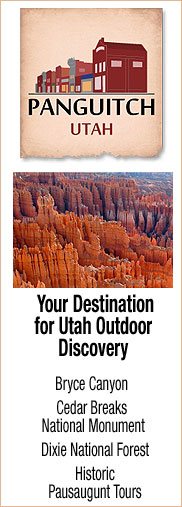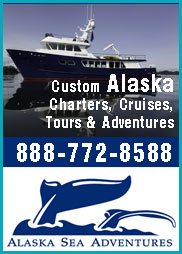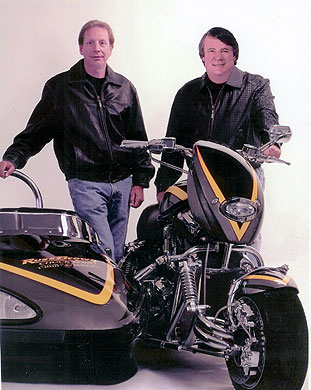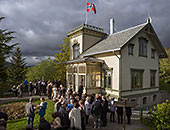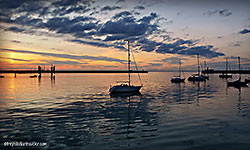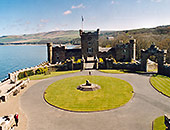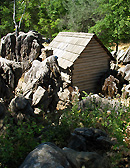 |
 |
|
 |



Meet Our Guest Writers
|
|
Editor's Note: As more of us explore the freedom of the back roads and blue highways of America on a motorcycle, it is if important that we know our rights. This week's guest bloggers are attorneys' Russ Brown and Chuck Koro, who specialize in motorcycle law. Russ has been riding for over forty years, and Chuck over thirty. Together they own seven motorcycles - a Harley Custom V-Rod Anniversary Edition, a Honda CBR 1100XX, a T-Rex (reverse trike), a Custom Trike, a Yamaha FJR 1300, a 1984 Harley with a sidecar and a 2008 Hayabusa. |
|
WHAT TO DO IF YOU ARE IN AN ACCIDENT |
|
Take Care of Your Health The most important thing to do is to address the health of the involved parties. If there is any doubt whatsoever that the parties have received anything other than minor injuries, call 911 so that they can dispatch paramedics to the scene or, if you are unable to, enlist the aid of someone else to call for you. Even if you believe that you only sustained minor injuries, it is a good idea to be examined by a healthcare professional within 24 hours of the accident. Injuries often turn out to be worse than initially thought. Riders often think they have just bruised or scraped their knee or shoulder when actually they have torn ligaments, which require further treatment. Without proper treatment in the initial stages, the original injury and symptoms may be exacerbated. Get Information from All Involved Parties and Witnesses Don't wait for the police to get this information. Parties and witnesses can leave the scene before the police arrive. If you can't get the information ask someone else to help. Get all phone numbers and addresses, business and home, and all insurance information. Carry paper and a pencil. The Police Report - Check for Accuracy Assuming the police arrive at the scene, it is important to make sure that they take your statement correctly. Police officers are not infallible. Sometimes a police report slightly changes a party's version which ultimately can cause problems in resolving the claim against the offending driver. If the police indicate to you that they do not intend to make a report, ask them to reconsider, although some police agencies will not make a formal written report if no one is injured. Monitor the preparation of the report and review it once it is finished to determine if there are any errors. If there are mistakes, it is generally advisable to contact the police agency immediately and file a supplemental report with the appropriate corrections. If you eventually file a claim and you have had an opportunity to review the police report but do not request corrections, any assertion by you months later that the report is wrong will raise a big question mark. The obvious question you will be faced with is: "Why didn't you tell the police that the report was wrong as soon as you read it?" In that regard, make sure that the police report has the appropriate location of the accident scene if it impacts your version at all. For example, a motorcyclist was injured when the offending driver crossed over the double solid lines of the car pool lane into the fast lane striking the motorcyclist. A big issue that eventually had to be overcome was whether or not the other driver actually crossed over double lines or whether the lines were broken. Your Motorcycle If your bike is towed from the scene, make arrangements as soon as you can to move it to a location where you are not going to incur storage charges. If your bike sits at the tow yard, it may get sold in a lien sale to pay for the storage fees. Not only have you lost your motorcycle and its value, but you may have lost valuable evidence in pursuing your claim. Insurance Companies If you intend to make a claim against the offending driver through an attorney, it is generally advisable not to speak with that driver's insurance company. Frequently, an insurance company will try to obtain a recorded statement at the early stages. You may still be in pain or under the influence of medication and your thoughts may not be clear. The statement may be used against you later to try to show that you are not fully sure how the accident happened - this can happen even if you were thinking straight at the time of the original statement, as most people's versions will vary somewhat each time the facts are relayed. Generally, you have a contractual duty to timely notify your own insurance company of the accident, especially if you are going to make a claim under your own policy for the damage to your motorcycle or an uninsured/underinsured claim. Failing to timely notify your insurance company may give rise to a claim by the insurance company that it did not have sufficient notice to investigate the accident; and therefore, you may run into difficulty settling any claims with your own insurance company. Photographs - Preservation
of Evidence Photographs of the motorcycle are important to show the nature and extent of the impact and damage and may be helpful to an accident reconstructionist if one becomes necessary at some point to help you prove your claim. Pictures may also be helpful in evaluating the damage for reimbursement purposes. Photograph your damaged gear, as the nature of
the damage may be pertinent evidence to show how the accident
happened and to establish that your injuries are indeed related
to the accident. At the very least, if the other party is at fault,
you can request reimbursement. As noted above, if the exact location of the accident is important, photographs taken right at the scene are likely to put any ambiguities to rest. Photographs of skid marks, road conditions and debris may also be helpful later, although taking scene photographs immediately after the accident may not always be practical. Reporting Requirements In some states (such as California) you are required by law to notify the Department of Motor Vehicles within a relatively short period of time of your involvement in an accident if the accident involved injuries or if the property damage reaches a certain dollar value. (In California, the parameters are ten days and $750.) In some states, if the police do not arrive at the scene and someone is injured, you must report the accident to the appropriate police agency as well (within 24 hours in California). In the early stages following an accident it is often difficult to think clearly. Enlist the aid of a friend or a bystander to help you with any information you may need on the scene, and be careful what you say to whom. Follow through as indicated above to ensure that you have covered all of your bases.
Russ Brown & Chuck Koro can be reached at (800) 4-BIKERS; law@brownkoro.com or russbrown@russbrown.com. |
|
Dear Rush and Chuck, I wish I had read your article before our camping trip the Friday prior to President's Day. My wife and I were in a car accident on our way to a camp ground. We were "rear-ended" and the impact caused our car to crash into the car in front of us. The contents of the truck that we were riding scattered onto several lanes. It's a miracle our two dogs decided to stay inside the car. My wife and I were shaken up badly but despite the mess, I was still able to walk out of the car. I got the license plate of the driver in front of me but, to my surprise, after reviewing the little damage on his car, he then sped off. I didn't know you could do that! The driver who hit me from behind gave me his information and then he too left the scene without saying good 'bye. When the police arrived all I had to go by was the little information I had jotted down which I hope was truthful. What if it was bogus? What if I had written the plate number incorrectly? How would that affect my insurance? What if we were unconscious, who would have written down all that information? I do have one suggestion if you are injured in an accident. The police asked if my wife wanted an ambulance to bring her to the hospital but we declined the offer. I remembered when I rode an ambulance years ago that it was not a comfortable ride. I was strapped to the stretcher and there were all sorts of medical equipment dangling noisily above me. As long as you are able, it is a more relaxful ride inside a car. Besides, isn't there a fee for ambulance service? --- Dave S. of Pasadena, CA |
|
| ||||
|
| ||||
This site is designed and maintained by WYNK Marketing. Send all technical issues to: support@wynkmarketing.com



